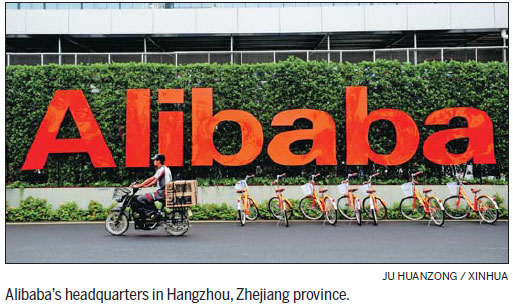Highland invested $17.5 million in Chinese Internet security company Qihoo 360 at the end of 2006, and its 15.94 percent stake had a total value of more than $630 million when it went public on the New York Stock Exchange in 2011. It has also invested in leading Chinese TMT companies such as Tuniu 6.CN, GameWave, NetentSec, Viva and UUSee.
He says many Chinese equity investment firms used to seek pre-IPO deals when the companies were very mature and profitable, but such opportunities have become rare.
He adds that while TMT giants are often strong, small companies can still provide good opportunities and may become new giants.
Thor cites Lycos, which used to be a popular search engine in the late 1990s. Yahoo overshadowed Lycos, and then Google rose up and became the giant, though Facebook, Twitter or something else might dethrone it someday.
"If a start-up team works hard and is willing to innovate and reverse the traditional business pattern, it may create a great company," says Thor, adding that his firm invests in companies that are one or two years old, because that's when they need money the most.
Many experts, however, do caution that the large number of cash-thirsty start-ups in China's rosy Internet market does not guarantee profits for foreign investors.
Some cite concerns that the Chinese government might try to tighten regulations to limit foreign investment in the TMT sector, which has increasingly grown into the most dynamic part of China's economy, or launch policies to give the growing number of local venture capital firms an edge in the sector.
A total of 189 new yuan-based funds emerged in China's venture capital market in 2013, raising a total of $6.38 billion in that year, while only 10 new foreign currency funds emerged in China in 2013, raising $541 million, according to a recent report from Zero2IPO Research, a leading research institution in China's private equity industry.
China's increasing wealth has provided a new flow of venture capital funds for investment in Chinese businesses, analysts say.
Foreign-based venture capitalists can also find it hard to fully understand the market, adds Flynn.
"It's very easy for Western investors to see the likes of VIPshop and JD, and read the hype about Alibaba, and get a rosy view about China's e-commerce market.
"However, investors have to understand the nature of consumers in China, the contrast between the tier-one cities and the tier-four cities, and understand that you can't just view Alibaba as the 'Chinese Amazon'.
"Once Western investors understand these points, they can understand China's e-commerce market."
However, Annabelle Long thinks many foreign venture capital firms, which have now set up offices in China and hired Chinese people to run them, have a better chance to land deals.
"The main difference between Chinese and Western venture capital firms is the money they raise, RMB or US dollars," she says. At the same time, she says there is "no direct competition" between Chinese and Western venture capital firms because different companies focus on different sectors of the market.
However, what she does see as the major threat for Western firms like hers is the increasing power of China's big three Internet companies - Baidu, Alibaba and Tencent.
Citi Research has forecast that the three will drive Internet-related deals in China to a record this year.
"As a Western VC, how to compete with leading Chinese Internet firms in making deals with start-ups is our biggest problem," Long says, adding that her firms invest $100 million every year.
She says writing a $5 billion check would be a big decision for any Global 100 Index company, but it is not a difficult choice for rising Internet giants such as Alibaba, which just spent cash and shares worth more than $3 billion to buy UCWeb, a Chinese mobile browser company.
Heading to its highly anticipated IPO in the US, Alibaba has stepped up its buying spree by investing in various companies from media and shopping malls to online video platforms and football clubs.
Alibaba alone has spent more than $5 billion this year in buying controlling stakes of smaller firms or making strategic investments in promising startups.
Late last month, Naspers posted a surprise 2 percent drop in full-year earnings after ratcheting up expansion spending, sending its shares lower - but analysts still said its stake in Tencent is worth nearly as much as Naspers' entire market value.
Alibaba and Tencent have announced 61 acquisitions and investments with a value of $24.5 billion since 2012, according to data compiled by Bloomberg.
Music to the ears, no doubt, of those early-stage foreign investors.
Contact the writers at mengjing@chinadaily.com.cn.

(China Daily Africa Weekly 07/18/2014 page6)
